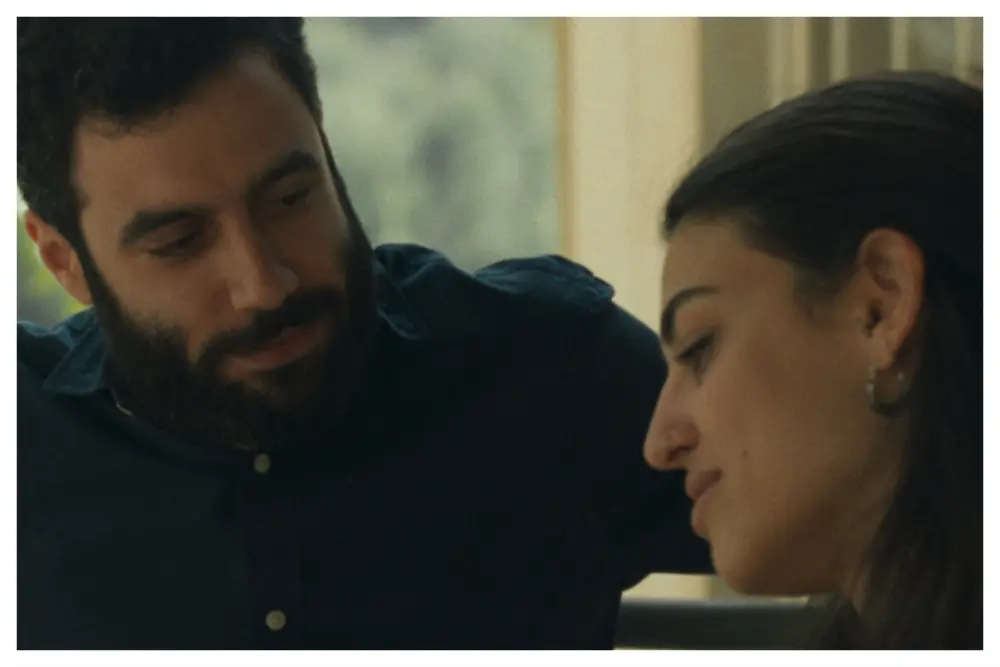Scandar Copti’s “Happy Holidays” won top honors at the Marrakech Film Festival on Saturday, capping an emotional and politically resonant ceremony while adding Marrakech’s Étoile d’Or to a list of accolades that also includes best screenplay from Venice’s Orizzonti and best in show from the Thessaloniki Film Festival.
The acclaimed title also claimed a shared best actress prize for leads Manar Shehab and Wafaa Aoun.
Split into four chapters, the Palestinian film follows an ensemble of characters – Arab and Jewish alike – living in contemporary Haifa. Family secrets and domestic tensions underscore scenes from everyday life as the film traces out an expansive social circle with a novelistic attention to cultural and interpersonal dynamics.
This year’s jury – led by Luca Guadagnino alongside Andrew Garfield, Jacob Elordi, Virginie Efira, Patricia Arquette, Zoya Akhtar, Ali Abbasi, Nadia Kounda and Santiago Mitre – together awarded the winning title with a unanimous vote.
Popular on Variety
Virginie Efira, Manar Shehab, and Andrew Garfield As she accepted the award on behalf of her filmmaking partner, screenwriter Mona Copti cast her joy for the accolades against the harsher reality of the ongoing war in Gaza.
“How did we get here,” she asked. “How did dehumanization become normalized? How have killing, destruction, and martyrdom become almost acceptable? How did we lose our moral compass and reach this point of ethical collapse?”
“We hope this film offers some answers to these questions by shedding light on the repercussions of indoctrination in societies and its impact on individual behavior—particularly in communities where women remain constrained by customs and traditions that deny them personal freedom above all else. Our struggle is interconnected, and true liberation cannot be achieved in isolation. None of us is truly free until all of us are.”
‘The Cottage’ producer Mercedes Córdova and director Silvina Schnicer Indeed, nearly all the night’s speeches carried a political charge. As director Silvina Schnicer accepted the jury prize for her film “The Cottage” – an honor the film shared with Mo Harawe’s “The Village Next to Paradise” – the Argentine auteur decried the heavy hand of her country’s Javier Milei government, specifically when it comes to cutting cinema funding.
Finally, Polish drama “Under the Volcano” was the night’s other big winner, claiming the director prize for filmmaker Damian Kocur and the best actor trophy for star Roman Lutskyi. In another riveting speech, the actor dedicated his award to the armed forces of Ukraine.
For its 21st edition, the Marrakech Film Festival exceeded 40,000 attendees, marking a 5000-admission increase from the previous year’s record, with young adults and students from Moroccan film schools in large parts accounting for the surge. Alongside its wider outreach programs, Marrakech also introduced an expanded festival hub that spread out over a half-mile, incorporating new venues while fostering a more vibrant and encompassing atmosphere.
Mo Harawe Awards season hopefuls like Walter Salles’ “I’m Still Here” and Gints Zilbalodis’ “Flow” screened for rapturous crowds, while Jean-Claude Barny’s political biopic “Fanon” made its world premiere – bolstering the festival’s reputation as a continental showcase for African cinema.
Pursuant to those goals, the festival will double down on its Atlas Distribution Award – a recent initiative meant to fuel wider domestic and international distribution for the Moroccan, Arab and Pan-African films presented in Marrakech. 22 titles from this year’s selection will be eligible for Atlas support, including the night’s big winner.
“We realized that these projects, outside of their time in festivals, were often not distributed in the Arab world or in Africa,” says festival coordinator Ali Hajji. “To ensure the viability and longevity — both culturally and economically — we saw the need to create a distribution system to better reach those audiences. Quite simply, we want Arab and African audiences to see these films.”
Silvina Schnicer, Mo Harawe, Mona Copti, Manar Shehab, and Damian Kocur

 Italian
Italian







